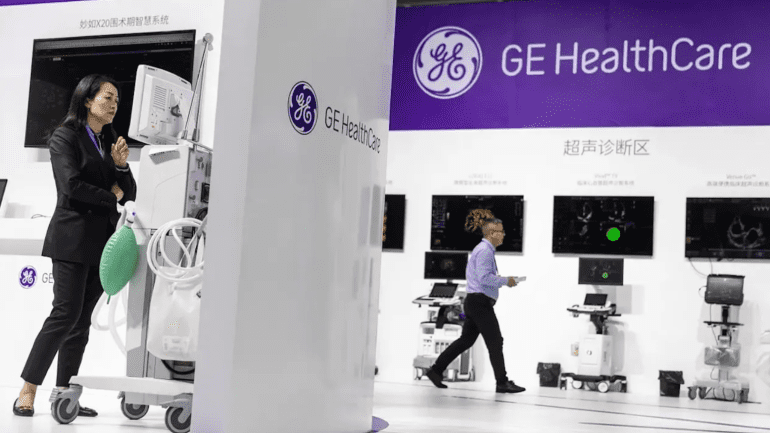- GE HealthCare has partnered with Amazon Web Services (AWS) to build generative AI models aimed at improving the analysis of medical data.
- The collaboration seeks to address challenges related to managing the extensive and diverse data generated within the healthcare sector.
- Healthcare data, which constitutes nearly one-third of global data, is often fragmented across various formats and systems, leading to underutilization.
- According to Deloitte, up to 97% of hospital-generated data remains unused.
- The new AI tools will enhance healthcare operations such as screenings, diagnoses, decision support, and workflow management.
- AWS will provide solutions like Amazon Bedrock and Amazon SageMaker to support the development of scalable generative AI models.
- GE HealthCare plans to use generative AI to boost internal productivity, including real-time code generation for software developers.
- The tools will undergo rigorous testing before market release, with initial access granted to GE HealthCare employees and select customers.
Main AI News:
GE HealthCare has announced a significant partnership with Amazon Web Services (AWS) to create innovative generative artificial intelligence models and tools designed to revolutionize the analysis of complex medical data. This collaboration is set to tackle one of the healthcare industry’s most pressing challenges: the efficient management and utilization of vast amounts of data.
The healthcare sector generates nearly one-third of global data, yet a substantial portion of this information remains inaccessible due to its diverse formats and storage systems. Patient medical records, imaging data, scans, and insurance documents are often spread across various platforms, making it difficult for doctors and researchers to extract meaningful insights. According to a Deloitte report, up to 97% of hospital-generated data goes unused, highlighting a significant opportunity for improvement.
GE HealthCare, a leader in medical imaging, ultrasound, patient care, and diagnostic solutions, believes that generative AI can unlock the potential of this underutilized data. By partnering with AWS, the company aims to develop advanced AI models that will enhance healthcare operations, including screenings, diagnoses, decision support systems, and workflow management such as scheduling.
Dr. Taha Kass-Hout, GE HealthCare’s global chief science and technology officer, expressed optimism about the partnership’s impact. “The tools we expect to build as a result of this collaboration will be instrumental in helping hospitals and clinicians make the most of their data,” he told CNBC. The integration of AWS technology will also accelerate the development of web-based medical imaging applications, providing radiologists and medical professionals with streamlined access to crucial analytics.
AWS will contribute its expertise and infrastructure, leveraging solutions such as Amazon Bedrock and Amazon SageMaker to support the rapid development of scalable generative AI models. Matt Wood, AWS’s vice president of AI, emphasized the complexity of training these models, noting the need for extensive computational resources, data, and specialized knowledge. “Training these models requires substantial compute power, data, and expertise, and our collaboration is focused on meeting these demands,” Wood explained.
Beyond enhancing healthcare applications, GE HealthCare is also exploring how generative AI can improve internal productivity. The company plans to use tools like Amazon Q Developer to generate real-time code suggestions for its software developers, thereby boosting their efficiency and productivity.
GE HealthCare maintains a commitment to rigorous testing and quality standards, ensuring that all generative AI applications undergo thorough evaluation before being released to the market. Initially, these new models and tools will be available to GE HealthCare employees and selected customers. However, the company has plans to broaden access to these innovations, aiming to benefit the wider healthcare community in the future.
Conclusion:
The partnership between GE HealthCare and AWS represents a significant advancement in the healthcare sector’s ability to leverage generative AI for data management. By addressing the challenge of fragmented and underutilized data, this collaboration has the potential to enhance operational efficiencies, improve diagnostic accuracy, and streamline clinical workflows. For the market, this means a shift towards more sophisticated data-driven solutions in healthcare, potentially setting a new standard for how medical data is utilized and managed. The integration of advanced AI tools could drive innovation, improve patient outcomes, and increase the overall effectiveness of healthcare delivery.

